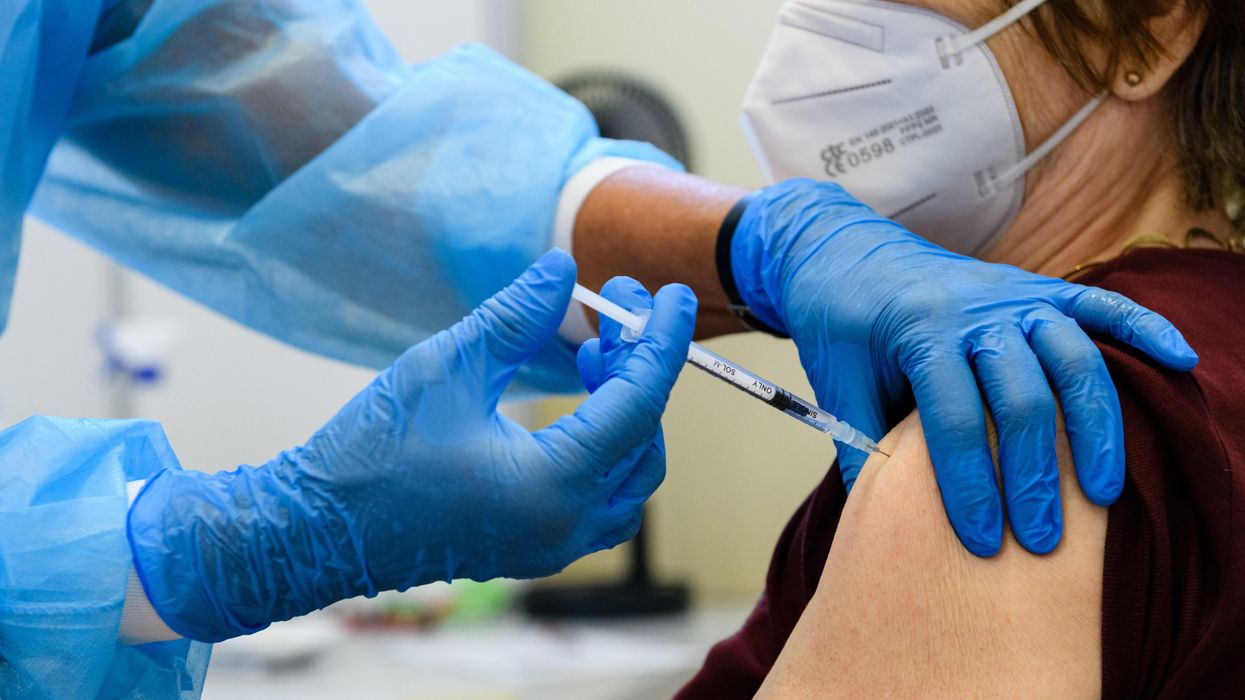
Photo by Jens Schlueter/Getty Images

The U.S. Food and Drug Administration has given the green light to a second round of booster shots for all Americans over the age of 50, according to various reports.
The decision now lies in the hands of the U.S. Centers for Disease Control and Prevention as to how to implement the new authorization.
According to CNN, the FDA expanded the emergency use authorization of the Pfizer and Moderna COVID-19 vaccines to permit adults aged 50 and older to get a second booster shot.
The shot, according to the report, can be administered as early as four months after their first booster dose.
In a release, Dr. Peter Marks — director of the FDA’s Center for Biologics Evaluation and Research — said, “Current evidence suggests some waning of protection over time against serious outcomes from COVID-19 in older and immunocompromised individuals. Based on an analysis of emerging data, a second booster dose of either the Pfizer-BioNTech or Moderna COVID-19 vaccine could help increase protection levels for these higher-risk individuals. Additionally, the data show that an initial booster dose is critical in helping to protect all adults from the potentially severe outcomes of COVID-19. So, those who have not received their initial booster dose are strongly encouraged to do so.”
In a statement on the news, a Moderna spokesperson said, "The FDA's endorsement of a second booster dose will allow millions of Americans to build and maintain protection against SARS-CoV-2. The virus continues to evolve, and we are currently on the verge of another potential wave driven by the BA.2 variant. Data continue to show that mRNA boosters remain the best defense against severe infection and death, and vaccines are a foundational part of our public health protection. Now, healthcare providers have the opportunity to advise higher-risk people about when and how to get boosted and build immunity in advance of future outbreaks."
Pfizer, for its part, added, "Together, these data demonstrate the public health need in the most vulnerable individuals and suggest that an additional booster dose of the Pfizer-BioNTech COVID-19 Vaccine administered at least four months after the initial booster will restore antibodies to peak levels, improve protection in older people, and provide a similar safety profile to that of previous doses."
Dr. William Schaffner, infectious diseases expert at Vanderbilt University, said that he believes the U.S. ought to wait until there is a clear and present danger from a new variant or new surge to roll out any fourth doses.
“If you have only one bullet in your gun to shoot, I would prefer to hold fire until the fall, because that’s when cases may really start to increase,” Schaffner said, pointing out that he's very "concerned" that the fourth dose could confuse people who haven't gotten a third dose.
“I’m very concerned about dividing and not being able to conquer because the messaging will get very, very confusing,” he explained. “And so I think public health officials and clinicians ought to be continuing to focus on getting the third dose into people who are eligible.”